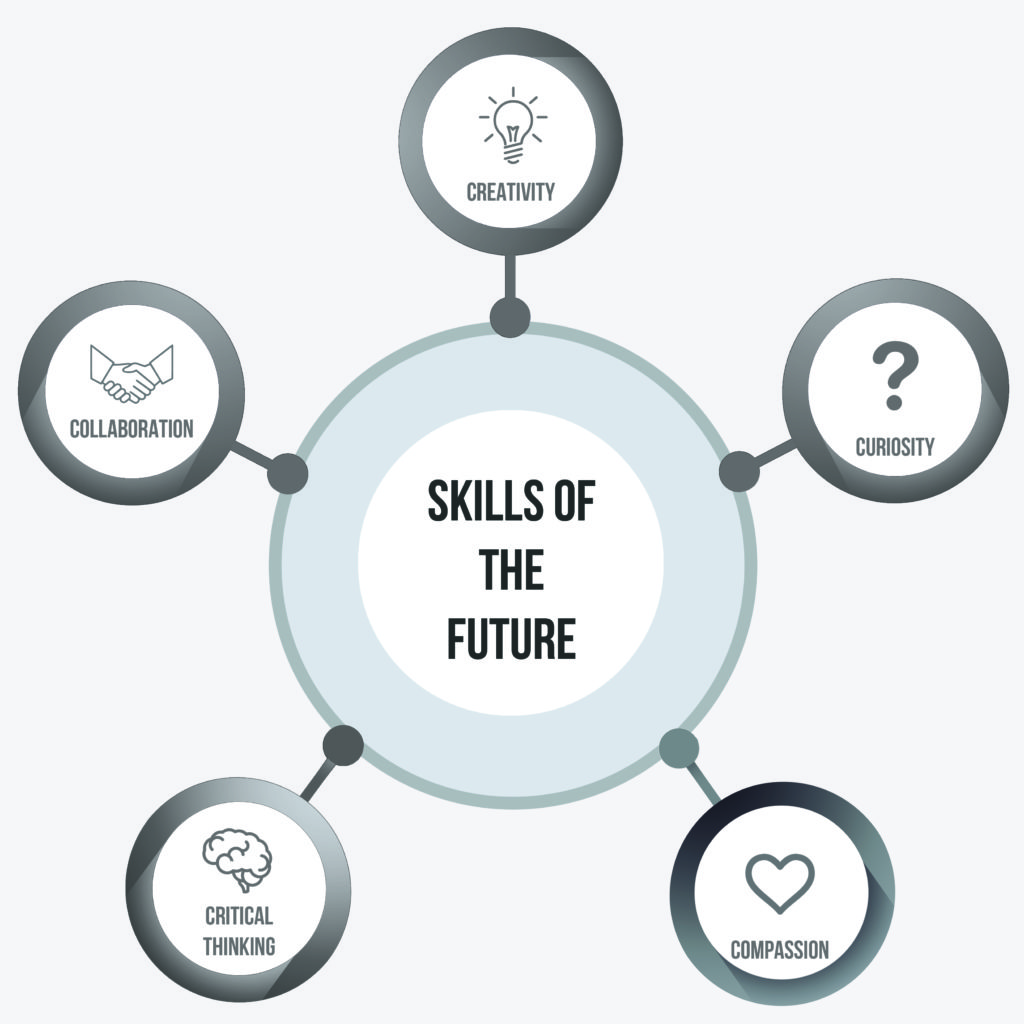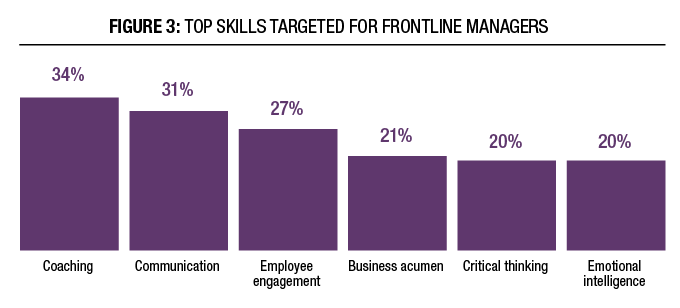The #AI Enabled Future of Work Requires Essential Human Skills
In my new book on Artificial Intelligence for HR (debuted at #1 on the New and Noteworthy books on Amazon), the final chapter is dedicated to the future human skills of the workplace. As I worked through the research I realized there were some common themes that blended together across academic and industry research sources to highlight a handful of key soft skills that need to be prioritized in an automated workplace.
The most important skill of the future isn’t coding or technical in nature. It’s the soft skills that will matter.
–Jeff Weiner, CEO, LinkedIn
The Future Human Skills Model
In the research process my team and I identified five key skills that kept surfacing over and over again as critical differentiators in the “humans versus machines” future we’re inevitably moving towards. Those skills include:
- Creativity — the ability to come up with novel ideas and innovations
- Curiosity — being able to ask questions and seek new information
- Collaboration — working closely with others to solve problems together
- Compassion — taking time to care about the person beyond the interaction
- Critical Thinking — the ability to take ideas and apply them in practical contexts
 Supporting Research
Supporting Research
Research for these key skills comes from a ton of areas, but here are a few.
- MIT’s research shows that key areas for teaching creativity include projects, peers, passion, and play. Each of these components maps to a skill: projects (build critical thinking, go beyond memorization), peers (collaboration with others), passion (compassion, creativity), and play (curiosity). Each of these areas is powerful in its own right, but collected together they offer a way to teach creativity and innovation, a key competitive edge humans have.
- CLO magazine reports that the future of digital work is human in nature. For instance, the image below depicts key soft skills for frontline managers: coaching (compassion/collaboration), communication (collaboration), employee engagement (compassion, curiosity), business acumen (critical thinking), critical thinking, and emotional intelligence (compassion).
These are just a few of the resources that support this research model, but it’s an example of how tightly interwoven those key skills are into the fabric of work. Business leaders need to be looking at ways to instill the 5 C’s into themselves to “future proof” against a more automated workplace. Why? Because every time work has been automated in the past, the resulting jobs and tasks have been more human in nature as we automate the less human aspects. These core human skills are important today, but they’ll matter even more in the future.
Additionally, we should be looking at ways to instill these components into the workforce. It’s always been hard to teach and measure soft skills, but that’s no excuse for getting caught flat-footed. We must look for ways to teach these core components to our teams and workforces in order to take advantage of the human qualities that make us different from the algorithms, bots, and other systems we’re relying on more and more each day.

Ben Eubanks is the Chief Research Officer at Lighthouse Research & Advisory. He is an author, speaker, and researcher with a passion for telling stories and making complex topics easy to understand.
His latest book Talent Scarcity answers the question every business leader has asked in recent years: “Where are all the people, and how do we get them back to work?” It shares practical and strategic recruiting and retention ideas and case studies for every employer.
His first book, Artificial Intelligence for HR, is the world’s most-cited resource on AI applications for hiring, development, and employee experience.
Ben has more than 10 years of experience both as an HR/recruiting executive as well as a researcher on workplace topics. His work is practical, relevant, and valued by practitioners from F100 firms to SMB organizations across the globe.
He has spoken to tens of thousands of HR professionals across the globe and enjoys sharing about technology, talent practices, and more. His speaking credits include the SHRM Annual Conference, Seminarium International, PeopleMatters Dubai and India, and over 100 other notable events.

